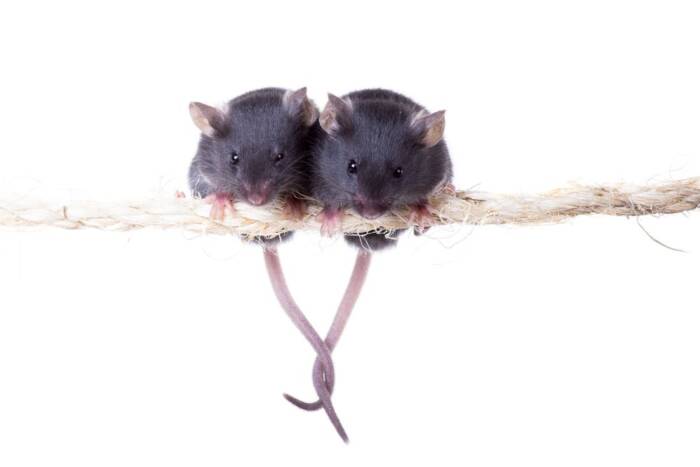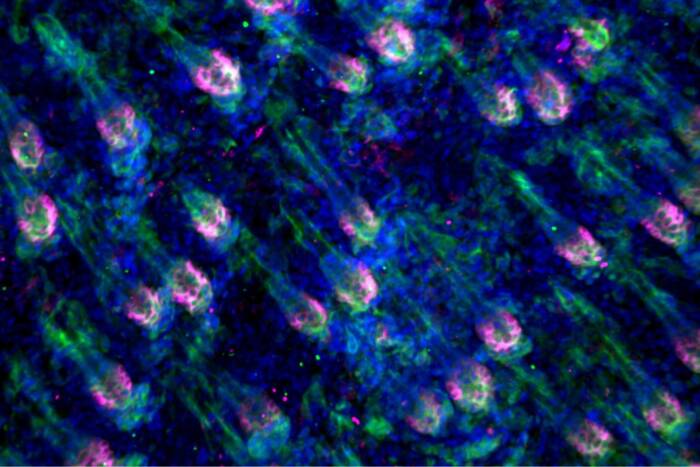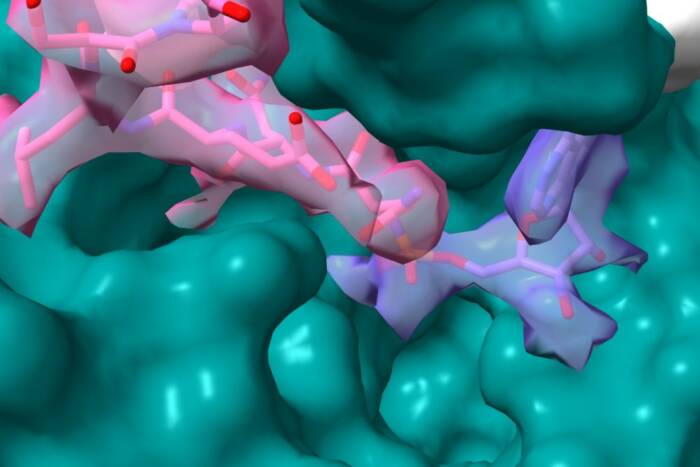Pharma exec, editor to be university's first visiting scholars
by TALLEY HENNING BROWN
For a few weeks this fall, talk on campus will step beyond basic science. Former pharmaceutical executive Peter Goodfellow and Nature editor in chief Philip Campbell will join The Rockefeller University this month as its first visiting scholars. The Visiting Scholars Program is part of the effort set in place by the university’s strategic plan to actively promote cross-disciplinary collaborative exchange (see “From Paul Nurse”); Drs. Goodfellow and Campbell will each visit for two weeks, and in spring 2008 Dr. Campbell will return for a month’s visit. They will have office space on the fourth floor of Nurses Residence.
Drs. Goodfellow and Campbell are friends and past colleagues of university president Paul Nurse. After floating the idea to both men some time ago, Dr. Nurse extended official invitations last year. “Peter and Phil are ideal for the program, because their background in academia and their work in industry and in the media, respectively, gives them an unusual vantage point and a fresh perspective to offer to the Rockefeller community,” says Dr. Nurse. “My long relationship with them will allow us to enter the program with an experimental mind-set and will help us to shape what the Visiting Scholars Program
 (opens in new window)should be and how it should work.”
(opens in new window)should be and how it should work.”
Dr. Goodfellow’s career progression — from academic researcher to industry executive — was informed by a driving curiosity of what he could create with science. After opening his first microbiology book as a teenager (and not knowing what microbiology was), he formulated a theory on how microorganisms could be used to extract gold. Following training in human genetics and developmental biology at Bristol, Oxford and Stanford Universities, Dr. Goodfellow began his first independent position at the Imperial Cancer Research Fund. Over 13 years there, he developed new methods in human gene mapping and identified the gene on the Y chromosome responsible for male sex determination. In 1992, he was offered the Balfour Professorship and became head of the University of Cambridge’s genetics department.
Collaborations with colleagues during his Cambridge years resulted in his cofounding two biotechnology companies: Sequanna Therapeutics, a genomics-based drug discovery company, and Hexagen, which developed techniques for rapid discovery of gene mutations. That’s where his interest in drug discovery took root, and in 1996 he became senior vice president of biopharmaceutical research and development at SmithKline Beecham Pharmaceuticals, later GlaxoSmithKline. His work at GSK embraced a search for ways to make the drug discovery process more efficient. “Drug development is a slow, complicated process no matter how you dice it, but we need to focus on producing a better — and faster — return on the public’s investment in research and development,” he says. During his 10 years at GSK he implemented automation in the synthesis and testing of target molecules, backed investment in new technologies and began assembling a library of important human metabolic proteins and the molecules that target them, so that if, in the future, any of those proteins is linked to a disease, the process of designing a drug for it will have already begun.
Dr. Goodfellow retired from GSK last year and now divides his time among the kitchen, the garden and advising biotechnology firms. “Society funds biomedical research because we have promised to translate new knowledge into new treatments for disease. Rockefeller, as a leading academic institution, can influence how academia and
 (opens in new window)industry deliver on that promise,” he says.
(opens in new window)industry deliver on that promise,” he says.
Dr. Campbell earned a bachelor’s degree in aeronautical engineering, a master’s in astrophysics and a Ph.D. in upper atmospheric physics. Among the career options afforded him by 10 years of advanced training in the physical sciences, Dr. Campbell made an unusual choice: He became an assistant editor at a multidisciplinary science journal. He spent 11 years at Nature — he served as physical sciences editor for nine — before leaving in 1988 to launch Physics World, an international magazine of the Institute of Physics widely regarded for its authority and accessibility.
Dr. Campbell returned to take the helm of Nature in 1995. During his tenure as editor in chief, circulation has increased nearly 20 percent; the journal remains the highest cited multidisciplinary journal; and the Nature Publishing Group, of which Dr. Campbell is a board director, has created several Nature research journals in fields including neuroscience, cell biology, immunology, materials science, methods and chemical biology, as well as review journals in many areas and innovative online publications. From his position front-and-center to the conversation among scientists, the public and policy makers, Dr. Campbell regularly writes articles for Nature and other publications, on subjects spanning biology, physics, chemistry, national and international science policy, science and the public, bioterrorism and research ethics.
“The Visiting Scholarship will give me the time to draw together some thinking on controversial societal issues stimulated by discoveries in the natural sciences, examining how both natural and social sciences can feed into the policy-making process,” says Dr. Campbell. “And I’ll enjoy exploring whether New York has, as we Londoners believe, been overtaken in its massive cultural wealth and diversity by our home town.”


